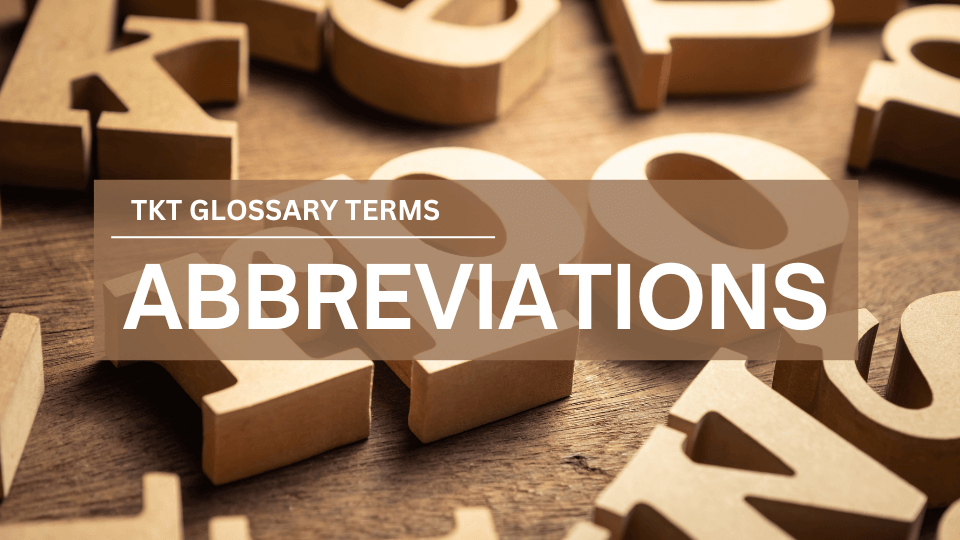
Abbreviations
An abbreviation is a shortened form of a word or phrase, typically consisting of the first few letters of the word or phrase. Abbreviations are commonly used in written and spoken communication to save time and space, and to make communication more efficient.
Definition mentioned in the TKT Glossary:
A short form of a word or phrase; e.g. in addresses, Rd is an abbreviation of Road.
Why are abbreviations used?
There are several reasons why abbreviations are used.
To save time:
They can help to speed up communication by shortening long words or phrases.
To save space:
Abbreviations can help to reduce the amount of text or speech required to convey a message, which can be useful when space is limited.
To make communication more efficient:
They can help to make communication more efficient by reducing the time and effort required to read or listen to a message.
Examples of abbreviations in common use
Mr. (Mister)
Mrs. (Missus)
Dr. (Doctor)
St. (Street)
Ave. (Avenue)
Prof. (Professor)
Inc. (Incorporated)
Ltd. (Limited)
etc. (et cetera)
i.e. (id est)
e.g. (exempli gratia)
ASAP (as soon as possible)
RSVP (répondez s’il vous plaît)
DIY (do it yourself)
FAQ (frequently asked questions)
While they can be helpful, they might cause confusion if not understood by the audience. It’s best to use them sparingly and make sure they are well-known and clear to the intended audience.
Can you think of some other examples? Please write them down on your notebook.
Want to get back to the main list? Just click the first letter of the term you want to study.

Meet the Trainer – Noel Perera
Noel loves helping new teachers improve their skills and grow their careers. He has worked with many TKTiers worldwide, guiding them for the exam and enhancing their teaching methods. Ace The TKT holds his knowledge and experience gained over 18 years as an English teacher and trainer.
Disclaimer
This independent platform offers resources and support for individuals preparing for the Teaching Knowledge Test (TKT). It is not affiliated with or endorsed by the University of Cambridge or Cambridge Assessment English.
The terms TKT and Cambridge are trademarks and intellectual property of the University of Cambridge. All references to these terms are intended for educational purposes only. The content and materials on this website are independently developed and do not constitute official Cambridge resources.
For official information about TKT, please visit the Cambridge Assessment English website.

